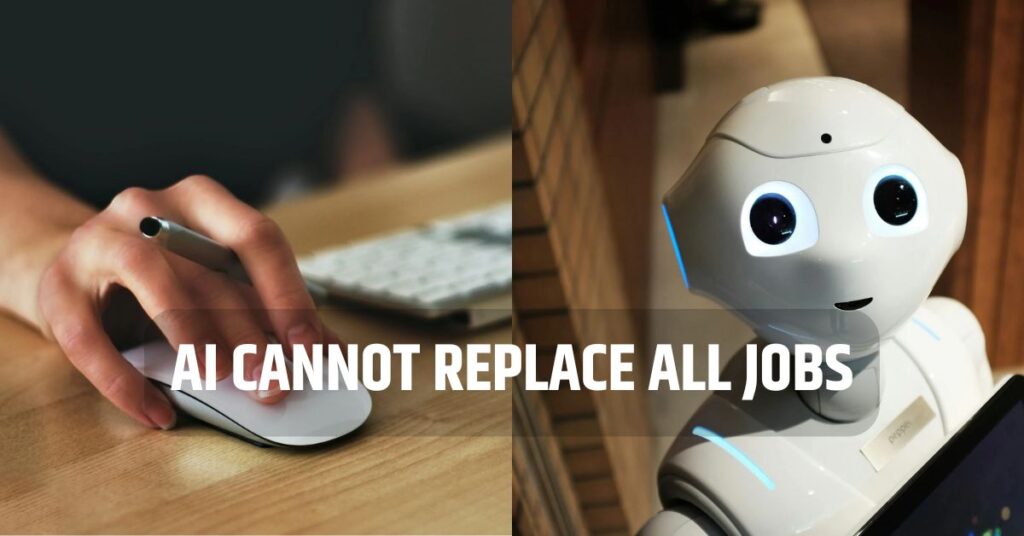With the rise of artificial intelligence and automation, many workers are asking the same question: Will AI take my job?
The answer isn’t as simple as “yes” or “no.” While AI is indeed reshaping the job market—automating repetitive tasks and replacing certain roles—experts say it won’t replace all jobs. In fact, some careers are expected to thrive because of the automation era, not in spite of it.
According to experts in technology and economics, three specific types of careers are more likely to survive and evolve as AI continues to advance. Here’s a look at what makes these roles more secure and how you can future-proof your career.
1. Creative Careers: The Human Touch AI Can’t Imitate
AI may be able to generate content, music, or art—but it lacks genuine human emotion, originality, and cultural nuance. That’s why careers in creative industries are likely to survive.
Examples of creative jobs AI can’t fully replace:
- Writers, screenwriters, and novelists
- Visual artists and illustrators
- Musicians and composers
- Fashion designers and brand stylists
Why they’ll survive:
Creativity involves more than patterns—it’s about empathy, innovation, and emotional intelligence. While AI can assist in content generation, it still needs a human spark to create something that resonates on a deeper level.
2. Human-Centered Careers: Built on Empathy and Relationships
AI lacks the emotional intelligence required for jobs that involve personal interaction, care, or decision-making based on empathy. That makes human-centered roles among the most future-proof.
Examples of human-centered careers:
- Therapists and psychologists
- Teachers and educators
- Nurses, doctors, and caregivers
- Social workers and counselors
Also read: Calicut University Nanoclusters Breakthrough: Low-Cost Innovation for Science and Industry
Why they’ll survive:
These jobs involve complex human emotions, trust, and ethical judgment. No algorithm can truly comfort a grieving patient or guide a student through personal challenges. These roles require real human connection, something AI simply cannot replicate.
3. Strategic and Leadership Roles: AI as a Tool, Not a Boss
While AI can analyze data and suggest decisions, it doesn’t possess strategic thinking, vision, or moral responsibility. Leaders will still be needed to guide organizations, make final calls, and align decisions with long-term human goals.
Examples of strategic roles:
- Entrepreneurs and startup founders
- Business consultants and analysts
- Policy makers and executives
- Project managers and team leaders
Why they’ll survive:
Strategic roles require judgment, foresight, and accountability. AI can provide insights, but only humans can set goals that involve ethics, purpose, and leadership in uncertain or changing environments.
Final Thoughts: Don’t Compete—Collaborate With AI
Instead of fearing AI, the key is to learn how to work with it. Upskilling in digital literacy, emotional intelligence, and creativity can make your career AI-resistant.
Pro Tip: Ask yourself—What can I do that a machine can’t?
That’s where your future lies.
FAQs
Q: What types of jobs are most at risk from AI?
A: Roles involving repetitive tasks—like data entry, factory work, or basic customer support—are more likely to be automated.
Q: Can AI replace creative jobs?
A: AI can assist in creativity but lacks the emotional depth and originality required for true creative innovation.
Q: How can I future-proof my career?
A: Focus on building skills that are uniquely human—like empathy, creativity, communication, and complex decision-making.
Conclusion
AI is here to stay—but that doesn’t mean it will take over everything. Careers that are creative, human-centered, or strategic are expected to survive—and even thrive—in the age of AI. The future belongs not to those who resist change, but to those who adapt and evolve.











